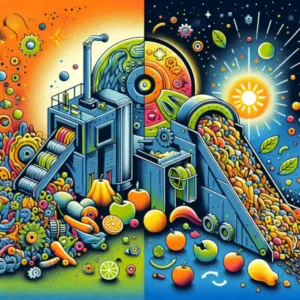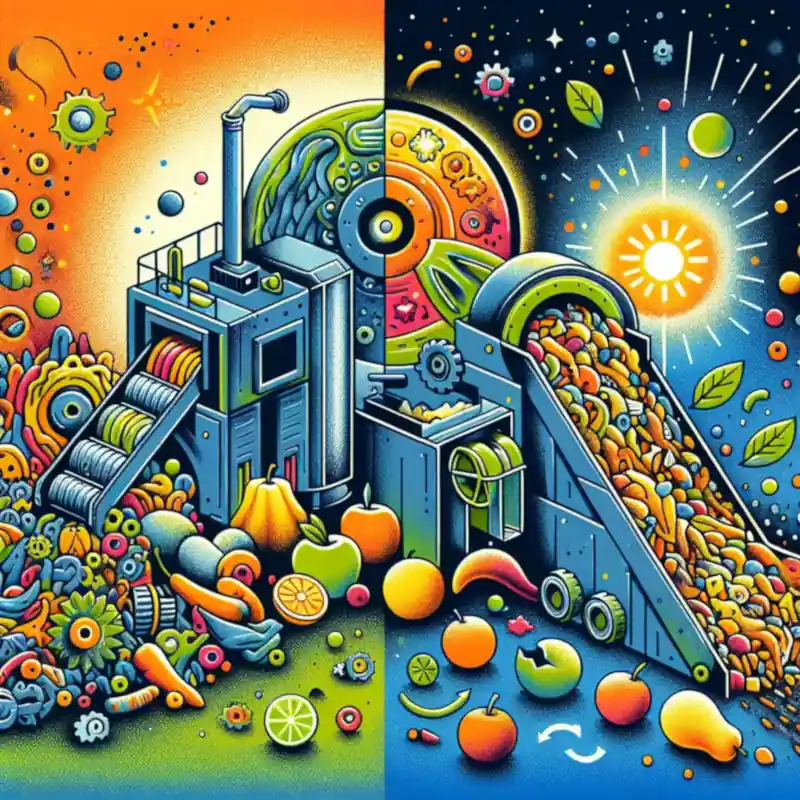Food waste is a significant global issue, with an estimated one-third of all food produced worldwide ends up as waste. This not only represents an enormous economic loss but also a tremendous waste of resources. However, the problem of food waste also presents an opportunity: the conversion of this waste into energy. One crucial component in this process is depackaging.
Depackaging refers to the process by which food waste is separated from its packaging, allowing for the organic material to be processed and converted into energy. The packaging can then be recycled separately, further reducing the environmental impact.
The concept behind converting food waste to energy is simple: organic materials, such as leftover or spoiled food, can be broken down in a process known as anaerobic digestion. This process involves microorganisms breaking down organic matter in the absence of oxygen, producing biogas – a mixture primarily composed of methane and carbon dioxide.
Biogas can then be used similarly to natural gas; it can be burned for heat or power or even purified and fed into gas grids. It’s a renewable source of energy that reduces reliance on fossil fuels and helps mitigate climate change by preventing methane – a potent greenhouse gas – from being released into the atmosphere when organic matter decomposes naturally.
Depackaging plays a vital role in this process because many forms of food waste come in packaging – whether it’s plastic-wrapped vegetables or canned goods. Before these items can undergo anaerobic digestion, they must first have their packaging removed.
Specialized depackaging machines are designed to handle various types of packaged food waste effectively and efficiently. The machines separate organic material from its packaging using a combination of rotating drums, screening systems, and extraction processes.
The result is two streams:
- one consisting entirely of organic material ready for anaerobic digestion and another
- comprising separated packaging ready for recycling.
By removing packaging from the equation early on, depackaging best practice ensures that biogas production is as efficient as possible. It prevents contamination in the anaerobic digestion system and ensures a higher quality of biogas is produced.

Furthermore, depackaging also aids in the recycling process. With food waste removed, packaging materials – whether plastic, metal, or glass – can be recycled more effectively. This not only reduces the amount of waste going to landfill but also contributes to a circular economy where resources are used and reused for as long as possible.
In conclusion, converting food waste into energy represents a promising solution to two pressing environmental issues: food waste and sustainable energy production. Depackaging is a crucial part of this process, ensuring that organic material can be converted into biogas efficiently and packaging can be recycled effectively. It’s an exciting development in our ongoing quest for a more sustainable future.

